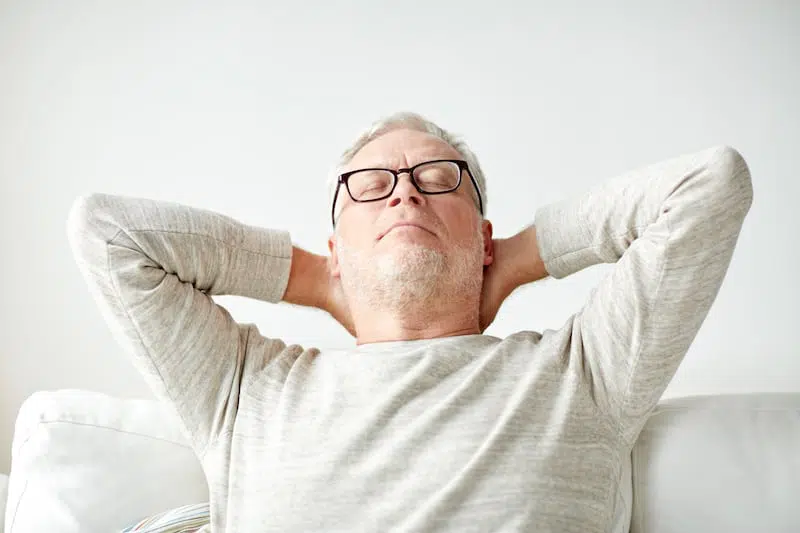Tip 3: How To Improve Your Sleeping Habits
In many cases, you can improve your sleep by addressing emotional issues, improving your sleep environment, and choosing healthier daytime habits. Since everyone is different, it may take some experimentation to find the specific changes that work best to improve your sleep.
Naturally boost your melatonin levels. Artificial lights at night can suppress your body’s production of melatonin, the hormone that makes you sleepy. Use low-wattage bulbs where safe to do so, and turn off the TV and computer at least one hour before bed.
Don’t read from a backlit device at night (such as an iPad). If you like to read from a tablet or other electronic device, switch to an E-Reader that requires an additional light source.
Make sure your bedroom is quiet, dark, and cool, and your bed is comfortable. We often become more sensitive to noise as we age, and light and heat can also cause sleep problems. Using a sound machine, earplugs, or a sleep mask can help.
Use your bedroom only for sleep and sex. By not working, watching TV, or using your computer in bed, your brain will associate the bedroom with just sleep and sex.
Move bedroom clocks out of view. The light can disrupt your sleep, and anxiously watching the minutes tick by is a sure-fire recipe for insomnia.
Keep a regular bedtime routine for better sleep.
Maintain a consistent sleep schedule. Go to bed and wake up at the same times every day, even on weekends.
Block out snoring. If snoring is keeping you up, try earplugs, a white-noise machine, or separate bedrooms.
Go to bed earlier. Adjust your bedtime to match when you feel like going to bed, even if that’s earlier than it used to be.
Develop soothing bedtime rituals. Taking a bath, playing music, or practicing a relaxation technique such as progressive muscle relaxation, mindfulness meditation, or deep breathing can help you wind down before bed.
Limit sleep aids and sleeping pills. Many sleep aids have side effects and are not meant for long-term use. Sleeping pills don’t address the causes of insomnia.
How to nap. If you don’t feel fully alert during the day, a nap may provide the energy you need to perform fully for the rest of the day. Experiment to see if it helps you.
Some tips for napping:
- Keep it short. Naps as short as five minutes can improve alertness and certain memory processes. Most people benefit from limiting naps to 15-45 minutes. You may feel groggy and unable to concentrate after a longer nap.
- Nap early. Nap early in the afternoon. Napping too late in the day may disrupt your nighttime sleep.
- Be comfortable. Try to nap in a comfortable environment preferably with limited light and noise.
(Keep an eye out for these memory loss misconceptions and common myths)







